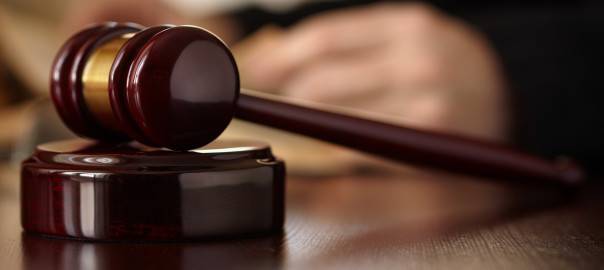Your Constitutional Right to Confront Your Accuser in Court
State legislatures and prosecution lobbyists frequently find ways to have laws enacted that erode valuable constitutional rights. Not least among
Minor in Court
In California, current law (Penal Code § 1347) allows a trial court to order that the testimony of a minor may be had by way of a closed-circuit television system where the minor is not in court with the judge, jury, prosecutor, and defendant, but the minor’s testimony and the lawyers’ questions can be heard contemporaneously. The law allows this procedure if:
- The case involves a sexual offense committed on the minor; or
- The case involves a “violent felony” as defined in Pen. Code, § 667.5, subd. (c); or
- The case involves allegations of child abuse and the minor is the alleged victim.
Before the court can order this procedure, it must find that the following factors are so substantial that the minor would become unavailable:
- Testimony by the minor in the presence of the defendant would result in the child suffering serious emotional distress so that the child would be unavailable as a witness.
- The defendant used a deadly weapon in the commission of the offense.
- The defendant threatened serious bodily injury to the child or the child’s family, threatened incarceration or deportation of the child or a member of the child’s family, threatened removal of the child from the child’s family, or threatened the dissolution of the child’s family in order to prevent or dissuade the minor from attending or giving testimony at any trial or court proceeding, or to prevent the minor from reporting the alleged sexual offense, or from assisting in criminal prosecution.
- The defendant inflicted great bodily injury upon the child in the commission of the offense.
- The defendant or his or her counsel behaved during the hearing or trial in a way that caused the minor to be unable to continue his or her testimony.
Maryland v. Craig (1990)
The question becomes whether statutes like these are consistent with the Sixth Amendment. The United States Supreme Court has ruled in Maryland v. Craig (1990) 497 U.S. 836, that the state can properly eliminate in court confrontation where the denial of such confrontation is necessary to further an important public policy and only where the reliability of such testimony is assured.
This case was somewhat of a departure from a case the high court decided 2 years prior – Coy v . Iowa (1988) 487 U.S. 1012 In that case, the High Court’s opinion, authored by the late Justice Antonin Scalia ruled that confrontation is “essential” because it is more difficult to tell a lie about a person to his or her face than it is to do so behind his or her back.
Crawford v. Washington (2004)
We mention Justice Scalia because he was instrumental in another Sixth Amendment case – Crawford v. Washington (2004) 541 U.S. 36. In that case, the High Court ruled that out of court statements could not be admitted against a defendant unless the person that made the statements is subject to cross-examination. Prior to this case, courts had allowed out of court statements from witnesses so long as the trial judge decided that the out of court statement was reliable.
The question becomes is what impact does Crawford have when it comes to Craig? That is, in Crawford, the High Court took a very literal approach to the right to cross-examine accusers, ruling that the Sixth Amendment does not require reliable testimony, it requires that its reliability be “tested in the crucible of cross-examination.”
The High Court has yet to decide this issue squarely, but if the language of Crawford is any indication, it seems that there is a good chance that the Court will apply the language of the Sixth Amendment literally – i.e., that when you are charged with a crime, you have the right to “confront” your accusers and that means seeing them testify in open court. We have been defending people accused of crimes for over 40 years and we will never stop fighting to see that our clients are given a fair trial and giving them every chance to determine that their accusers lack credibility.
Contact the Criminal Defense Attorneys at Wallin & Klarich For More Information
If you find yourself or one of your loved ones facing serious criminal charges, it is extremely important that you retain the services of an experienced criminal defense attorney to work with you during this difficult time. At Wallin & Klarich, we have more than 40 years of experience fighting for people who are facing criminal charges
With offices in Orange County, Riverside, San Bernardino, Los Angeles, San Diego, West Covina, Torrance, and Victorville, there is an experienced and skilled Wallin & Klarich defense attorney available to help you no matter where you are located.
Contact our offices today at (877) 4-NO-JAIL or (877) 466-5245 for a free, no-obligation phone consultation. We will be there when you call.



